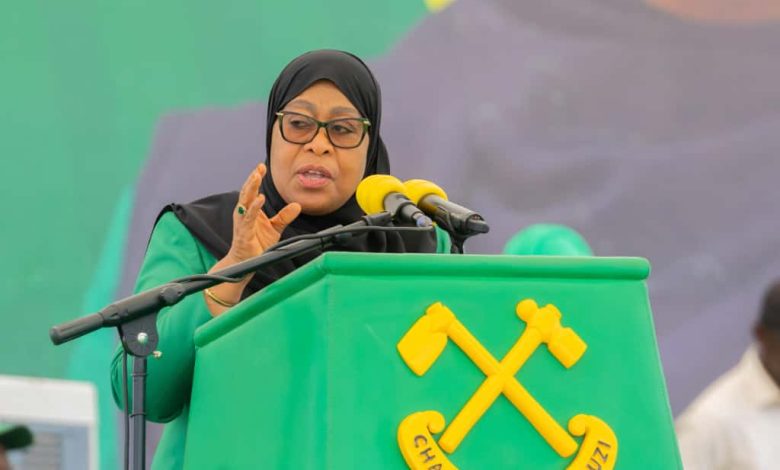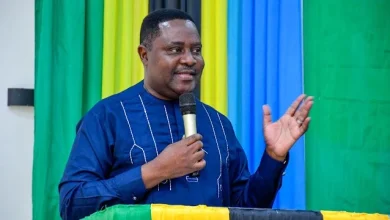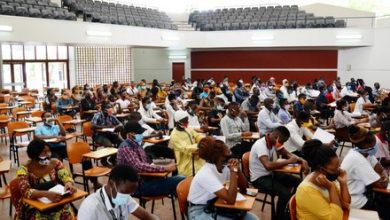Samia reshuffles DART, UDART top ranks

DAR ES SALAAM: PRESIDENT Samia Suluhu Hassan has made new appointments to the leadership of the Dar Rapid Transit Agency (DART) and the UDA Rapid Transit Public Limited Company (UDART), as part of government efforts to improve the efficiency of public transport services in the city.
A statement issued yesterday by the Directorate of Presidential Communications and signed by Chief Secretary Dr Moses Kusiluka announced that President Samia has appointed Mr Said Tunda as Chief Executive Officer of DART, replacing Dr Athumani Kihamia, whose appointment has been terminated.
The Head of State has also appointed Mr Pius Ng’ingo as Managing Director of UDART, replacing Mr Waziri Kindamba, whose appointment has been revoked.
In addition, Dr Samia has appointed Mr David Kafulila as Chairperson of the DART Advisory Board and Ambassador Dr Ramadhani Dau as Chairperson of the UDART Board.
The President’s decision comes amid long-standing public dissatisfaction with Dar es Salaam’s Bus Rapid Transit (BRT) services.
Addressing citizens at the Kivukoni and Kimara DART terminals yesterday, Prime Minister Kassim Majaliwa said the government has implemented both immediate and long-term measures to address the shortage of buses in the BRT system.
The Prime Minister announced that the government has directed Mofat Company, which operates the Mbagala– Gerezani route, to release 60 buses to serve the Kivukoni–Kimara corridor, helping to alleviate transport challenges.
“As of now, we have 90 buses operating on this route—60 newly added today (yesterday) and 30 older ones. We believe this will significantly reduce congestion,” Mr Majaliwa said.
He further revealed that the government has formally opened up the BRT business to private sector participation to enhance reliability and efficiency.
Four companies have already signed agreements to import new fleets. Among them, Mofat Company has begun bringing in 150 buses for the Mbagala route, while the others are finalising their procurement processes.
According to the Prime Minister, this move aims to ease congestion, increase the number of available buses and meet the rapidly growing demand for commuter services in Dar es Salaam.
He also noted that the government’s strategy is for all new BRT buses to operate on either gas or electricity, a shift intended to reduce operational costs and protect the environment.
He further directed the establishment of dedicated refuelling and charging stations for the fleet.
ALSO READ: Relief as MOFAT is awarded UDART’s Kimara route
In his directives, Mr Majaliwa tasked the Minister for Communication and Information Technology, Mr Jerry Silaa, with fast-tracking the completion of an electronic payment system to improve the commuter experience and prevent revenue leakages.
“We want every passenger to use a special card for payment and to access services without the need for cash,” he ordered.
The Prime Minister also issued a stern warning against vandalism of BRT infrastructure, calling on regional and district leaders, along with responsible agencies, to step up oversight to ensure citizens benefit from reliable and dignified transport.
He further encouraged city residents to make greater use of BRT services instead of driving private vehicles into the city centre.
“Commuters from Kimara, Mbagala and other areas should leave their vehicles at designated safe stations and board the BRT buses,” he said.
Mr Majaliwa also revealed that the government is finalising the construction of new BRT corridors, including Morocco– Mwenge–Tegeta, Ubungo–Buguruni–Mnyamani and Gongolamboto routes, which are expected to significantly ease traffic congestion in the city.
“Our goal is to ensure that Dar es Salaam residents have modern, reliable and environmentally friendly transport. This is the direction of your government,” the Premier stressed.
For his part, Dar es Salaam Regional Commissioner Mr Albert Chalamila called on citizens to protect the newly introduced BRT buses and related infrastructure, noting that the investment belongs to all Tanzanians through their taxes.
He strongly condemned acts of vandalism reported at some facilities just a day earlier, saying such actions disrupt services and place an unnecessary burden on the public.
“Some individuals vandalised parts of the infrastructure yesterday evening (Wednesday evening), and passengers were left complaining. When public infrastructure is destroyed, the whole nation suffers,” he said.
Mr Chalamila reminded city residents that Dar es Salaam depends heavily on daily income-generating activities, warning that damage to public property could undermine people’s livelihoods.





